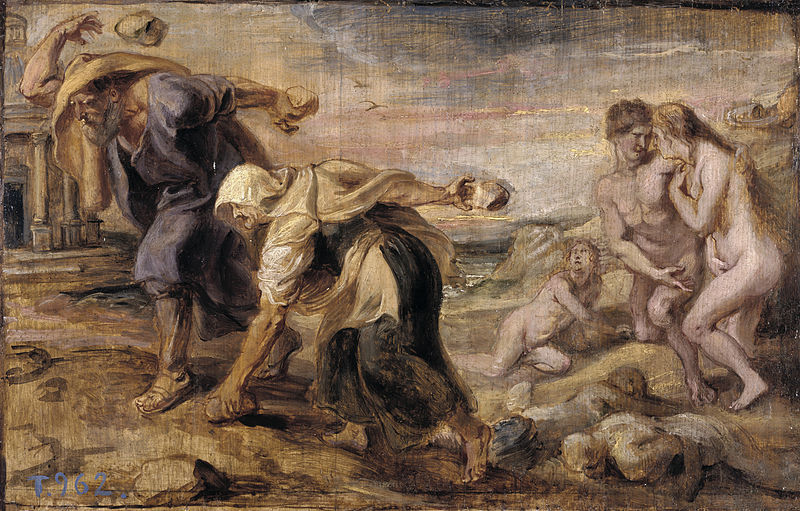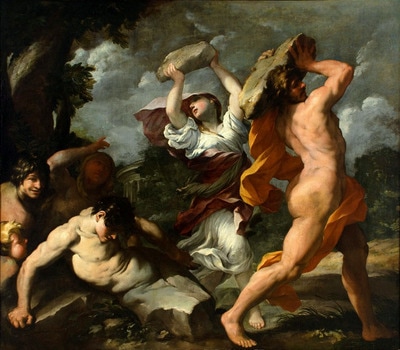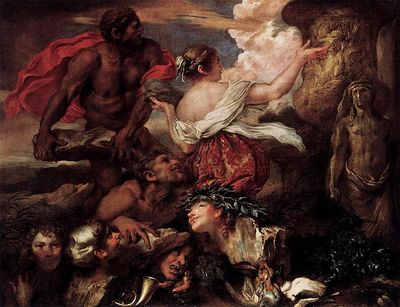Deucalion and Pyrrha
Deucalion and Pyrrha - Peter Paul Rubens (1577 - 1640) - Prado Museum
Date: 1636-37
Medium: Oil on panel
Dimensions: 26.4 x 41.7 cm
Medium: Oil on panel
Dimensions: 26.4 x 41.7 cm
|
Peter Paul Rubens painted this preparatory painting of Deucalion and Pyrrha between 1636 and 1637, with a full sized painting later painted by Rubens' good friend, Jan Cossiers.
Deucalion and Pyrrha depicts the story of the re-population of the earth after the Great Flood, where husband and wife having consulted the goddess Themis, threw stones over their shoulders to give birth to a new generation of man. The stones thrown by Deucalion becoming men, and Pyrrha gave life to women. More information about Deucalion and Pyrrha can be found here - (website opens in new window) Peter Paul Rubens |
|
Born: 28 June 1577; Siegen, Germany
Died: 30 May 1640; Antwerp, Belgium
Nationality: Flemish
Art Movement: Baroque
Painting School: Flemish School, Antwerp School
Died: 30 May 1640; Antwerp, Belgium
Nationality: Flemish
Art Movement: Baroque
Painting School: Flemish School, Antwerp School


